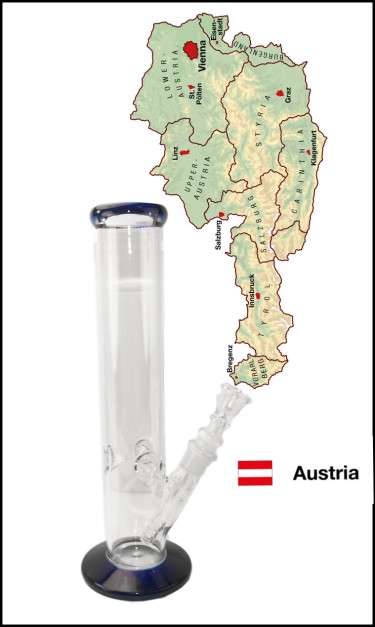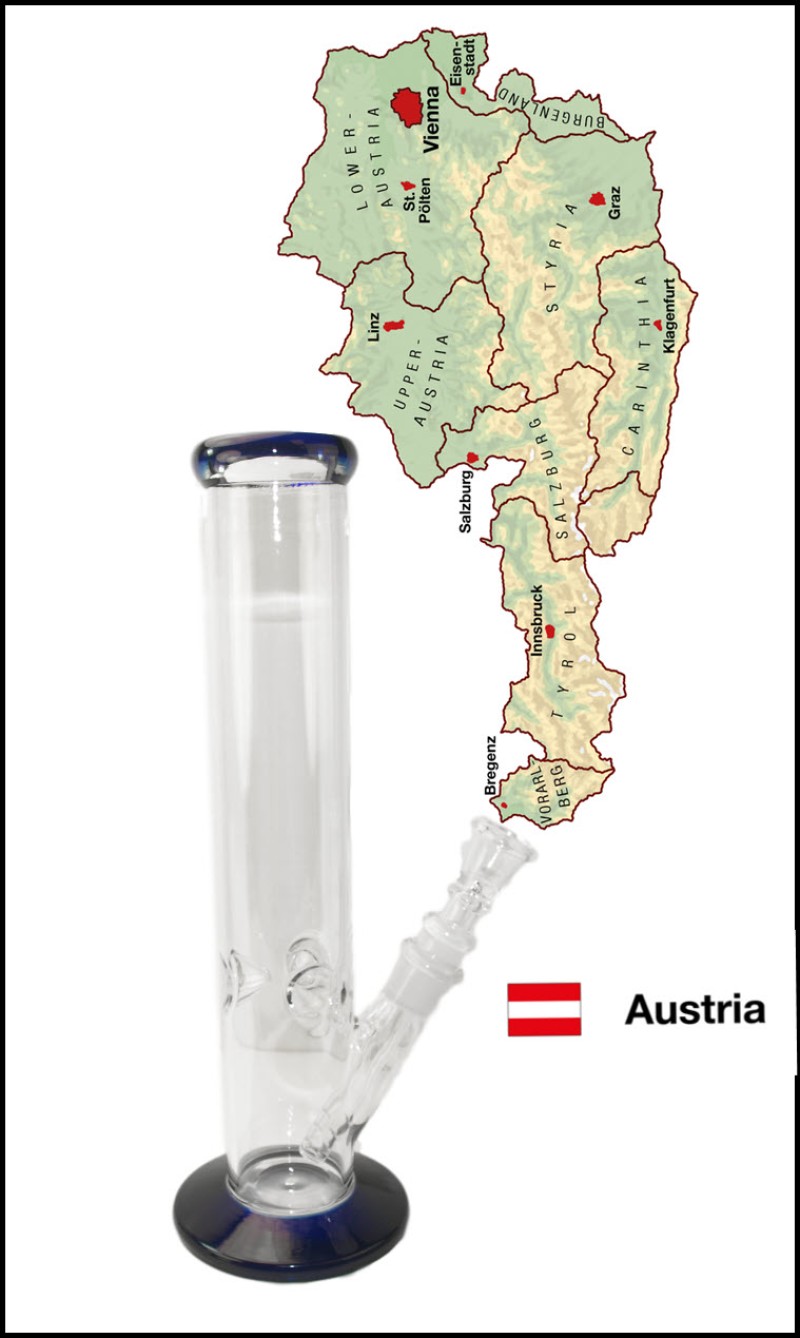
Presently, Austria is in a fascinating position as regards cannabis legalization. The third member of the European DACH alliance (a union that also consists of Switzerland and Germany) momentarily has no apparent legislative pathway to cannabis adult-use reform. This continues to be the situation even though its other trade partners are advocating for such debate in the European Union.
While that is the current situation, sales of dronabinol keep increasing every year in Austria even though it is not manufactured locally. The AGES (The Austrian Agency for Food and Health) cultivates medical cannabis flowers in hundreds of kilos annually which are exported to neighboring countries. Historically, a larger percentage is exported into Germany which is then refined into dronabinol and re-imported back to Austria.
As it stands, while the medical cannabis market in Austria is smaller when compared to that of Germany – limited cultivation with zero extraction – both countries do share some awful similarities. One of such similarities would be patients face several challenges regarding the procurement of insurance reimbursement. In Germany presently, the fastest and guaranteed approach is to sue, which considering the stockpile of legal cases, is merely another reason for further delay and gridlock.
Advocates in Austria are now looking to do away with all of this and be direct with recreational cannabis legalization even if not through Congress but by the legitimate challenge
The State of Cannabis Reform in Austria
The issues surrounding cannabis in Austria are quite complex given so many great areas regarding cannabis laws. Official adult use of cannabis is illegal in the country, but 30% to 40% of some young citizens between the age of 15 and 24 years have tried cannabis. As things stand herbal cannabis products are the most seized drugs across the. A country with hash holding the second position.
Among young citizens, medical use of cannabis is considered more acceptable compared to adult use. A survey carried out in 2017 discovered that 78% of young adults agreed with this bias. They believe medical marijuana should only be sold on doctor's prescriptions and be made available only in pharmacies. Just a small percentage (29%) supported that marijuana is made available to adults aged 21 years and above.
The same survey also indicated that even though cannabis is used for medical purposes, a larger percentage of Austrians want it to be tightly regulated. Only a small percentage of 26% approved that everyone should be able to cultivate cannabis for medical use. 20% remained unsure and 53% disagreed. Just about 21% approved that medical cannabis is made available at hemp shops and drug stores for purchase without a doctor's prescription while 59% were against it. In summary, while the Austrian government do not plan to enact more stringent restrictions, support for less stringent laws does not seem popular among Austrians.
Cannabis reform in Austria still has a long way to go. At the moment, it is illegal for citizens to sell, buy, consume, or cultivate cannabis (except the plant is not allowed to bloom). However, possession of cannabis flowers in small quantities has been decriminalized since 2016.
Nonetheless, like every other country that has continuously stalled on cannabis reform, the case continues to progress in the court.
The Supreme Court Challenge May Change the Game
Things might soon change for recreational cannabis reform in Austria. Right now, a conceivable deal-breaking case is now pending at the Constitutional Court in the country. The court is presently assessing a private petition issued by a 26-year-old named Paul Burger.
In 2020, Burger, in possession of a half-burned joint, was arrested by two undercover cops in Vienna. Now, together with a renowned lawyer, Dr. Helmut Graupner, he had a good chance to win the cases. Dr. Helumt Graupner is also known to have previously challenged the ban on same-sex marriage in the country, a case which he won. So, many advocates are hoping he succeeds in this one too.
With Burger's petition, the highest court in Austria must now examine if the Narcotics Drugs Act in Austria is constitutional. The argument brought forward which is similar to that before the Supreme Court in Mexico is that private cannabis use does not endanger others.
Hence, the right to self-determination and privacy should protect cannabis use that doesn't harm others. This same argument is also very similar to the idea responsible for the legalization of assisted suicide which was enacted earlier this year in Austria.
The Black Sheep or Potential Market Leader?
The legality of private use, cultivation, and possession of cannabis is an issue that has hovered across the legalization debate in Europe. Although, the debate is not as direct compared to the context of North America ( You can check both Mexico and Canada. Just last year, Albert Tio put up a legal challenge in Spain as regards access discussion when it was brought to the clubs. But unfortunately, the European Court of Human Rights rejected the legal challenge.
In the German context, before 2017, patients’ legal challenges became the game-changer for cannabis legalization. But, as patients began to count on their wins on the legal front, the Bundestag enacted new statutes. For instance, one of the laws demanded that patients must not cultivate their cannabis. Rather, they should obtain it through a pharmacy based on a doctor’s prescription. Furthermore, the law compelled that provided the patient's condition could not be cared for with other medications, insurers were expected to reimburse.
As it stands, the model has greatly failed which is why the German government is now back in the process of enacting legalization measures before the year ends.
Conclusion
Considering decisions on the Austrian case are to be made around the same time, this could set a precedent in the German-speaking region of Austria. Ultimately, this could formalize adult-use cannabis reform across Europe and not only in the DACH countries.
MORE ON EUROPEAN CANNABIS, READ THIS...
GERMANY LEGALIZES RECREATIONAL CANNABIS, EUROPE RUSHES TO CATCH UP!







